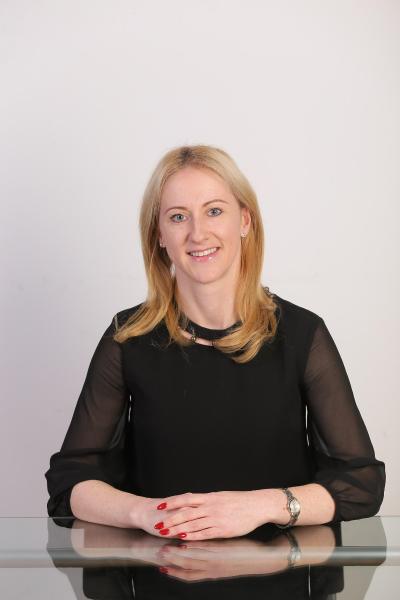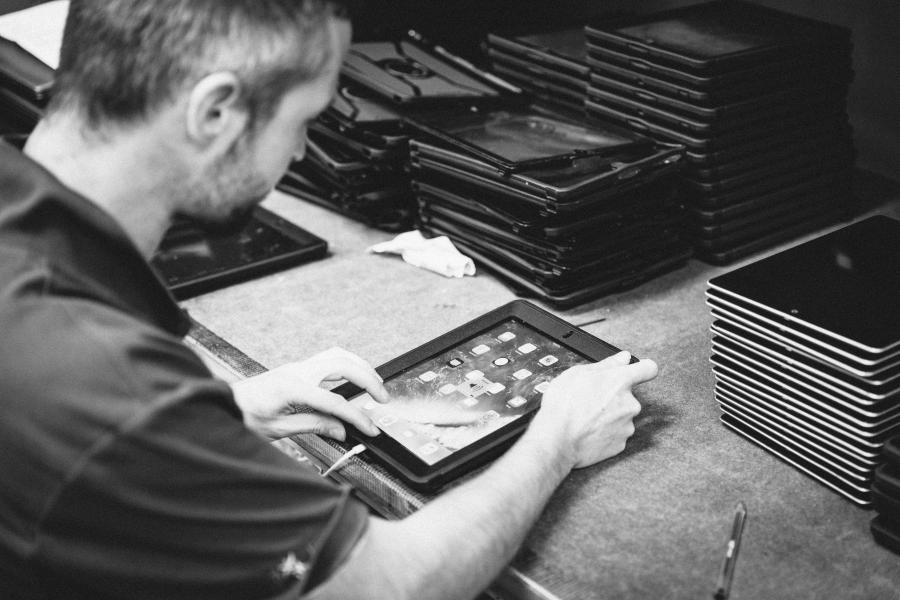Computer restoration company fixes broken or outdated equipment while providing a better life for the disadvantaged
The founders of Recosi believe in the “triple bottom line” model for running a business. The term, first coined by the sustainability expert John Elkington in 1994, proposes that instead of one bottom line there should be three: profit, people and the planet.
To those ends, Recosi’s business, with partnering operations in Ireland, Slovenia and the United States, hires disadvantaged people and trains them to refurbish used computers and other electronics equipment and then resell it. When possible, Recosi sells the items to other social enterprises or organisations that often cannot afford new equipment.
“We’re creating jobs for disadvantaged people, and we’re extending the lifecycle of products and therefore saving lots of precious material that would be needed for the production of a new laptop,” says Katja Zajko, one of the company’s founders and the head of its operations in Slovenia.
Since its founding in 2014, the organisation has refurbished and resold more than 150,000 items, most of which would have ended up in a landfill, Katja says.
The amount of computer and other electronic waste is staggering. According to the most recent report by the United Nations’ Global e-Waste Monitor, in 2019 a record 53.6 million metric tonnes of electronic waste was generated worldwide. This number is expected to keep rising. The same report says that only 17.4% of that waste was collected and recycled. This means that gold, silver, copper, platinum and other high-value, recoverable materials conservatively valued at $57 billion were mostly dumped or burned rather than being collected for treatment and reuse.

Katja Zajko, one of the company’s founders, says she’s happy that her work creates green jobs.
Creating green jobs
Katja and two colleagues from Ireland, Thomas Millar and Martin Reddy, founded Recosi together and started out in Ireland. In 2015, they opened an operation in Yuma, Arizona. In 2017, they opened the operation in Slovenska Bistrica, Slovenia, which Katja leads. Recosi has 30 employees in Ireland, about 150 in the United States, and seven in Slovenia, plus a steady stream of students in a work-training programme.
Recosi works closely with employment agencies and other services to find new employees. Some have physical disabilities, some are cancer survivors, some have been out of work for a long time and need training. The American operation focuses on hiring disabled veterans.
“One of the things I’m really happy about is creating green jobs,” says Katja. “And we’re not only contributing a new opportunity, but also helping create a new mindset about reuse and the environment.”
For Katja, bringing Recosi to her native country adds something extra. “I wanted to bring a social enterprise that could operate at a high level and give something back to society and to the environment,” she says. “And that is what I am passionate about.”
Recosi was a finalist in the 2019 Social Innovation Tournament, created by the EIB Institute to support entrepreneurs involved in projects that help the environment or society.
Bridging the digital divide
For the most part, the company gets its used computers from multinational corporations when they upgrade their equipment. These computers, screens, keyboards, tablets, smartphones, and laptops are usually three to five years old.
Recosi buys the items, cleans them, clears the memory (a plus for security conscious companies), and repairs damage. Recosi has a partnership with Microsoft to upgrade software to the current version.

Recosi usually gets used computers from big corporations when they upgrade their equipment
Recosi offers the items for sale on its websites for as much as 70% less than the new price. Current offerings include Dell and HP workstations and laptops, Apple computers, laptops, iPads and phones. All come with at least a one-year guarantee.
Recosi recently began selling its refurbished wares through Amazon, which is one of the ways the company is seeking to grow. Recosi is focusing on finding a new, bigger home in Slovenska Bistrica so that it can expand its capacity there, with the goal of expanding into the rest of Europe.
Recosi is also looking into using 3D printer technology to help repair broken parts, and to find ways to salvage materials in items that are beyond repair.
“We see there is huge, huge potential, especially during these Covid-19 times when so many people need equipment to work from home,” Katja says. “We really want to bridge the digital divide in providing affordable equipment to those who need it”.
